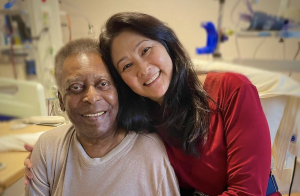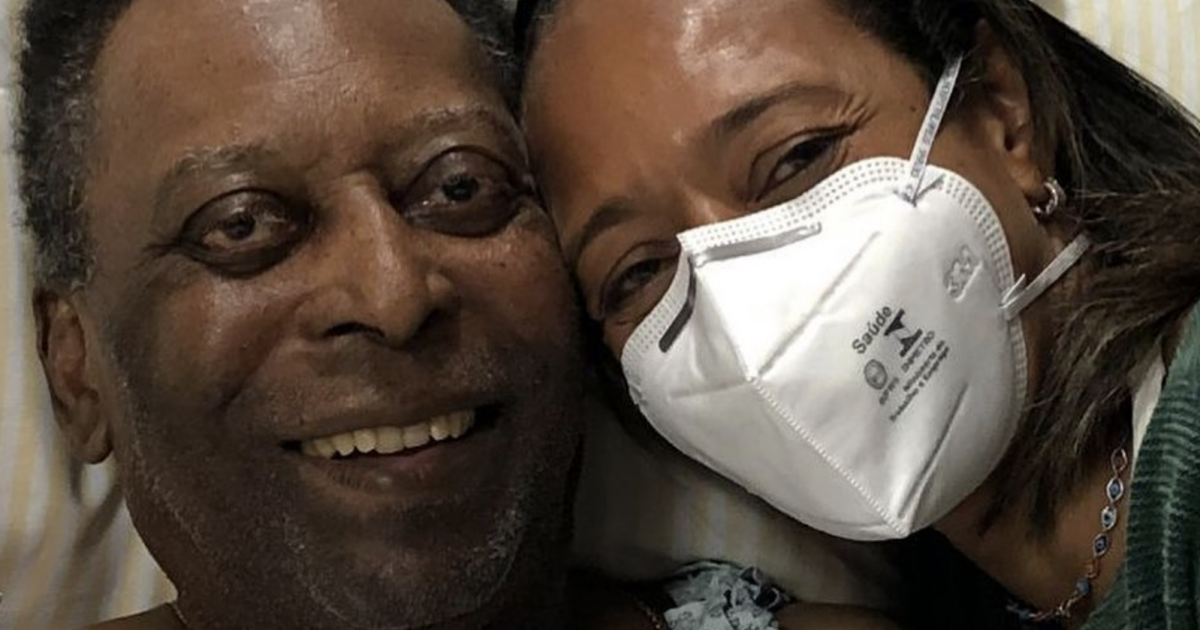Pelé's Colon Cancer Battle
- Soccer superstar Pelé had pulses racing on Wednesday after reports emerged claiming a complication related to his colon cancer landed him in the hospital. His two oldest daughters revealed, however, that their 81-year-old father had been at the hospital for chemotherapy that had been on his schedule for months.
- Pelé learned he had a tumor after undergoing a routine screening in August. He then had the tumor surgically removed in September. A few days after being released, though, he found himself back in the Intensive Care Unit due to “respiratory problems.”
- The most common form of colorectal screening is a colonoscopy. In this procedure, a camera is attached to a long, thin tube which allows a doctor to look throughout your entire colon and rectum. To prepare for a colonoscopy, you must first clean out your bowel with a strong, prescription laxative known as a "bowel prep" the night before.
However, those reports were greatly exaggerated, and on Thursday, the 81-year-old soccer star’s daughter cleared up any lingering misconceptions.
Read MoreShe closed out her post by writing: “Thank you very much for the affection, everyone … but Papi is Great.”

Flávia is a physical therapist and the second oldest of Pele’s six children.
Pelé’s oldest child, Kely Nascimento, reposted Flávia’s photo on her own Instagram page while adding some additional information.
She explained that her “dad completed a procedure that had been scheduled for months” and was in good hands.
“In two or three days, he returns home to enjoy Christmas,” wrote Kely. “This was not a surprise. It was already scheduled and is part of the treatment.”
Pelé learned he had a tumor after undergoing a routine screening in August. He then had the tumor surgically removed in September.

A few days after being released, though, he found himself back in the Intensive Care Unit, prompting the hospital to release a statement that read:
Edson Arantes do Nascimento [Pelé] presented brief respiratory instability at dawn on September 17, and as a preventive measure, he was transferred to the Intensive Care Unit. After stabilization of the condition, the patient was transferred to semi-intensive care. He is, at this moment, stable from a cardiovascular and respiratory point of view and is still recovering from the abdominal postoperative period.
The man whose fancy footwork made him world-famous had been struggling with a slew of health problems prior to his cancer battle.
He has been plagued by hip injuries ever since he retired from the sport, and despite undergoing hip replacement surgery in 2012, he has been unable to walk without assistance for years.
Pelé also had a kidney removed in 1977 and since then has sought treatment for kidney stones on at least three occasions.

His diagnosis also comes one year after the death of his younger brother and only sibling Zoca, who passed away from prostate cancer in March 2020.
Pelé broke the news of his brother’s death on social media, revealing that his brother had been battling the disease for over a year after being diagnosed with late-stage cancer.
To make matters worse, Pelé had been unable to visit his brother due to the pandemic.
Instead, he sent off his brother by writing: “May God receive you in heaven and comfort our family.”
What Is a Colorectal Screening?
The most common form of colorectal screening is a colonoscopy. In this procedure, a camera is attached to a long, thin tube which allows a doctor to look throughout your entire colon and rectum.
To prepare for a colonoscopy, you must first clean out your bowel with a strong, prescription laxative known as a "bowel prep" the night before. On the day of the procedure, you'll typically be sedated, and the procedure generally takes between 20 minutes and an hour.
While performing a colonoscopy, the doctor is looking for polyps, which could potentially turn cancerous if not removed. If they don’t find any, you’re in the clear, and don't need another colonoscopy for 10 years. If they find any polyps during the colonoscopy, they may be able to remove them during the procedure, though others may require surgery to be removed. Your doctor will also likely recommend more frequent screenings if any polyps are found.
Other colorectal screenings include stool tests and a sigmoidoscopy, which checks a portion of your colon. Virtual colonoscopies may also be an option for some. Your doctor can help determine the best test for you, but in general, a colonoscopy is considered the most thorough and effective at preventing and catching early-stage cancer.
Who Needs to Be Screened for Colorectal Cancer?
The U.S. Preventive Services Task Force recommends that people between the ages of 45-75 get screened regularly for colorectal cancer, and that those older than 75 talk to their doctor about their need for screening. As rates of colon cancer have increased among younger Americans, however, some experts believe screening should begin sooner.
There are some things that may put you at higher risk for colon cancer. They include things like your age (those age 50 and older are more likely to get it) and having a family history of colon cancer. There are, however, also risk factors that you can control to some degree. For example, the following may put you at higher risk for colon cancer:
- Smoking
- An unhealthy diet
- Heavy alcohol use
- Being overweight
- Physical inactivity
While there may be no symptoms of colon cancer in its earliest stages, there are some common warning signs, including a change in the color or shape of bowel movements, constipation, bloating, diarrhea, blood in the stool and unexplained weight loss. Anyone who experiences these symptoms, no matter their age or risk factors, should see their doctor.
Learn more about SurvivorNet's rigorous medical review process.


